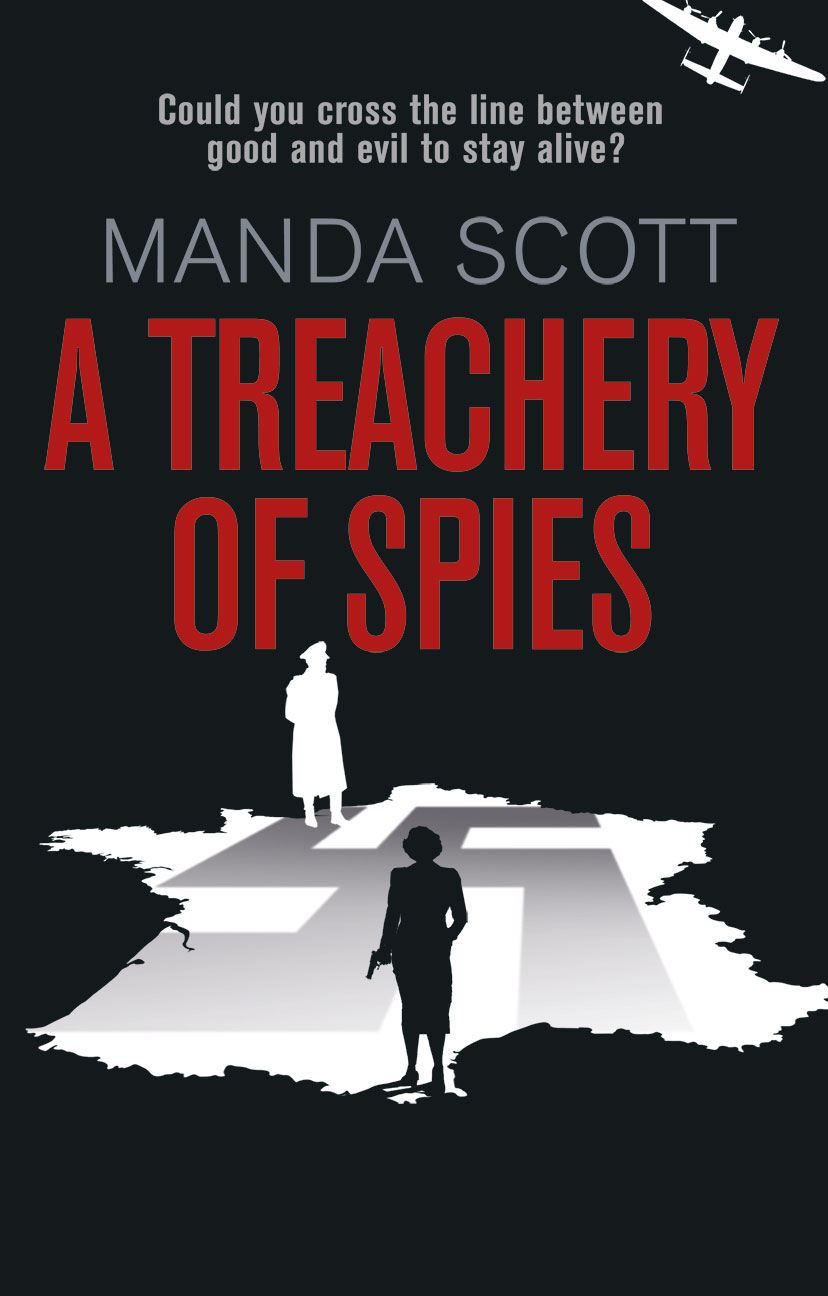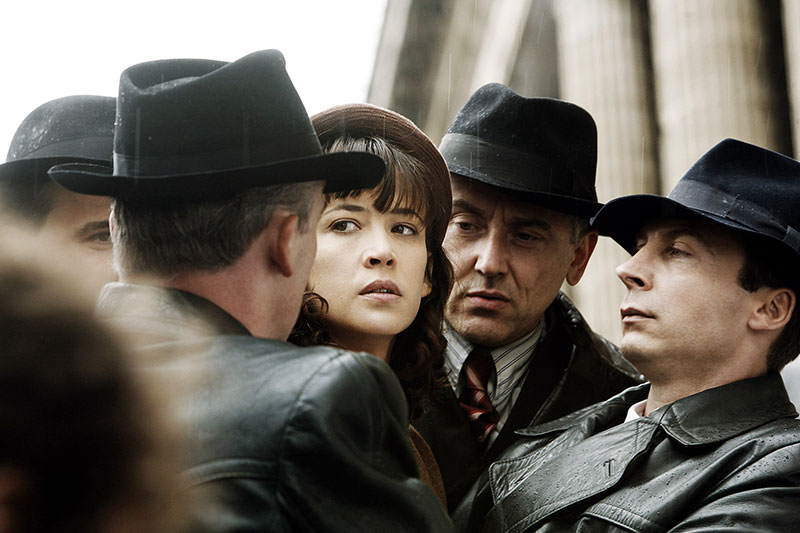THOUGHTS | DREAMS | ACTION

THOUGHTS | DREAMS | ACTION

I Always Wanted to be a Spy…

Pffth. When did that ever stop anyone? But when you’re a kid in single figures you take these things as written in stone, so I gave up on that, and decided instead I wanted to be an RAF ace like my hero, Pierre Clostermann who wrote Thin Blue Line, the book I read most from my Dad’s extensive WW2 library.
So I decided I’d be a spy and, as nobody had any good reasons why this might be impossible, it lasted rather longer than its predecessors. It wouldn’t have gone anywhere, of course, on account of my not having gone to the right kind of school and so missing out on the right kind of university, not to mention the aforesaid height challenge, contact lenses and tendency to sleep with the wrong kinds of people.
Spying had its drawbacks, though
Maybe they all knew I wasn’t cut out for it and had a rush of kindness to the head. In any case, the future-crush fell apart when I became old enough to raid the local library for its entire stock of WW2 books. Somewhere in the process, I read The Accidental Agent, by John Goldsmith, and reached the part where, working undercover in the heart of occupied France, he saw someone throw themselves from an upper storey window. They landed fairly close to him, and, on looking at the (mercifully dead) body , he discovered their eyes had been partially gouged out with a fork.
Suddenly life as a spy seemed a lot less glamorous and nobody in the adult cohort of my life, took the time to explain that neither Special Operations Executive, which was John’s ‘Firm’, nor the French Resistance with whom he worked, were technically spies.
Fast forward a number of decades and I found myself reading the Accidental Agent again – this time as research for A Treachery of Spies. I’d entirely forgotten its existence… until I got to the bit about eyes being gouged out with forks. Reading it as an adult was a wholly different experience, but just as profound. I was, and am, in awe of the courage of those who, with the most basic of training, parachuted behind enemy lines, into occupied nations any of whose citizens could easily have betrayed them to men whose own conditioning removed all empathy.

Novel-tinder: the sparks that light ideas
So how did I get there? The route was circuitous, but every novel starts with one or two sparks and this one was no different.
Spark One
Spark one was a conversation with an American publisher about the then-most-recent book, where the historical thread revealed the actual history (instead of the mythology) about the Maid, Jeanne d’Arc. She looked at me blankly and even when I Anglicised it, she was none the wiser. ‘Who was Joan of Arc?’ was, it transpired, not an unusual question amongst our transatlantic cousins. Note to self: if I’m ever going to write another dual time line novel – or indeed any historical novel of any sort – make sure it’s set in a historical period the Americans have heard of. I’m not interested in the American civil war, so that leaves us with one or other of the World Wars. That’s OK then.
Spark Two
Spark two arose out of my aforementioned infatuation with all things espionage. I was reading a history of the CIA and discovered that it arose after the Second World War, largely populated by men who had been members of the OSS, the Office of Strategic Services commissioned by Roosevelt to be an equivalent to MI6, then known as the Secret Intelligence Service. But I read a history of the Jedburghs, too – teams of three men, two officers and an Other Ranks who parachuted behind enemy lines after D-Day to help co-ordinate the actions of the various resistance factions. A large number were American and of those, a significant number ended up in the CIA, trying to replicate in other, less congenial (and less Industrial/Western) parts of the world, their experiences in the summer of 1944.
Spark Three
Spark three was the discovery that MI6 and then the nascent CIA, ran Klaus Barbie from 1944 onwards. Barbie was known as the Butcher of Lyon, one of the most vicious of a particularly vicious breed of Gestapo officers, he is said to have tortured to death Jean Moulin, the notional head of the French Resistance. Both of these are disputed, but the point remains that he regularly killed individuals in the most appalling circumstances. He personally loaded onto a train to Auschwitz, a dozen Jewish schoolchildren and the French nuns who had been hiding them – and he claimed to have ‘assets’ both behind Soviet lines and in the French communist party. These last two were what saved his neck. Both the UK and US were terrified that Europe might turn to communism in the aftermath of the war and were desperate for anyone who might be able to prevent this happening. IF Barbie could help, then they wanted him alive – they ran him for years, keeping him one step ahead of the French security services, and then when they got too close, they pushed him down the rat runs to Uruguay, where he set up torture chambers just like the ones he’d had in Lyon and carried on much as before, until he reached his 80s and nobody wanted him any more, so they gave him back to the French.
The Match
Finally, as the match to the tinder, or perhaps the tinder to all the sparks Edward Snowden piped up with definitive proof that the NSA, and its offshoot, the British GCHQ, were doing their best to gather everything about everybody and keep it forever.
Stitch all these together and you have a set of ideas:
- the men and women fought behind the lines in 1939 – 45 were amongst the most courageous our world has ever seen. They were genuinely the good guys in a relatively black and white situation.
- Nonetheless, they morphed in the space of a generation into the NSA/GCHQ who are definitely not the good guys. (Discuss: I’m happy that they’re keeping terrorists off the streets. I am not remotely happy that, for instance, anti fracking campaigners are being targeted as ‘domestic insurgents’)
- So at some point, there was a point where the moral compass flipped and while I’m sure there were multiple instances, the decision to take on, to keep safe, Klaus Barbie, a man who, without question, should have been hanged at Nurnberg, was a moment when the moral compass did a headstand. It won’t have been alone, and a lot of the slide is doubtless institutional, but as a focus for a novel, it’s a gift.
So there we have it: a premise, a set of points to aim for and a context. What more could we need?
We need, I think, a way of making the past relevant in the present and one of the most straightforward (and, from a writing perspective, stimulating) ways to do this is to have a dual time line novel where actions in the past have direct consequences in the present.
Actually, in this novel there are three time lines. I didn’t set out with this plan, but in the strange embryonic soup that emerges from the early planning, it was clear that this needed to be the case – that in the historical thread, I needed to see the world from the viewpoints of someone on the French side who would end up in the field, and from someone on the British side, who could run things, broadly – at least for a while – from behind a desk in London.
And thus was born A Treachery of Spies. It’s easily the most challenging book I’ve ever written, not least because here, at last, we encounter a time line that is still within living memory, where key actors are either still alive, or have direct descendants who are. So there are fictional towns and fictional people where in the past, I’d have been keen to use real names and real places on the basis of verisimilitude. Now, it matters not to tread on recent memory.
This isn’t, and was never going to be another French Resistance book with a terrified, but plucky heroine pacing the streets of a French city. In the books about the Special Operations Executive – John Goldsmith’s nameless ‘Firm’ – it became clear that one of the most interesting, and least explored angles was the interaction with the Maquis, the men – and often women – of the countryside who retreated to the forests and hills and did not try to remain within the general population. Many of the most inspiring women of the SOE ended up part of – and sometimes leading – Maquis bands, so it made sense to look at them. Besides, I live in the country and having to be in London for part of the book was quite enough grime and fog and headlights in the gloom.
It’s been an astonishing journey, and I’ve learned more than I could ever have imagined about the lives of our parents, grandparents, great-grandparents. I have been humbled, and awed and have wept at the courage and the grim reality of how human beings can teach each other. And while I still think I would have been a half decent spy. I’m not at all sure I’d have been any good at all as an agent of the Special Operations Executive.


